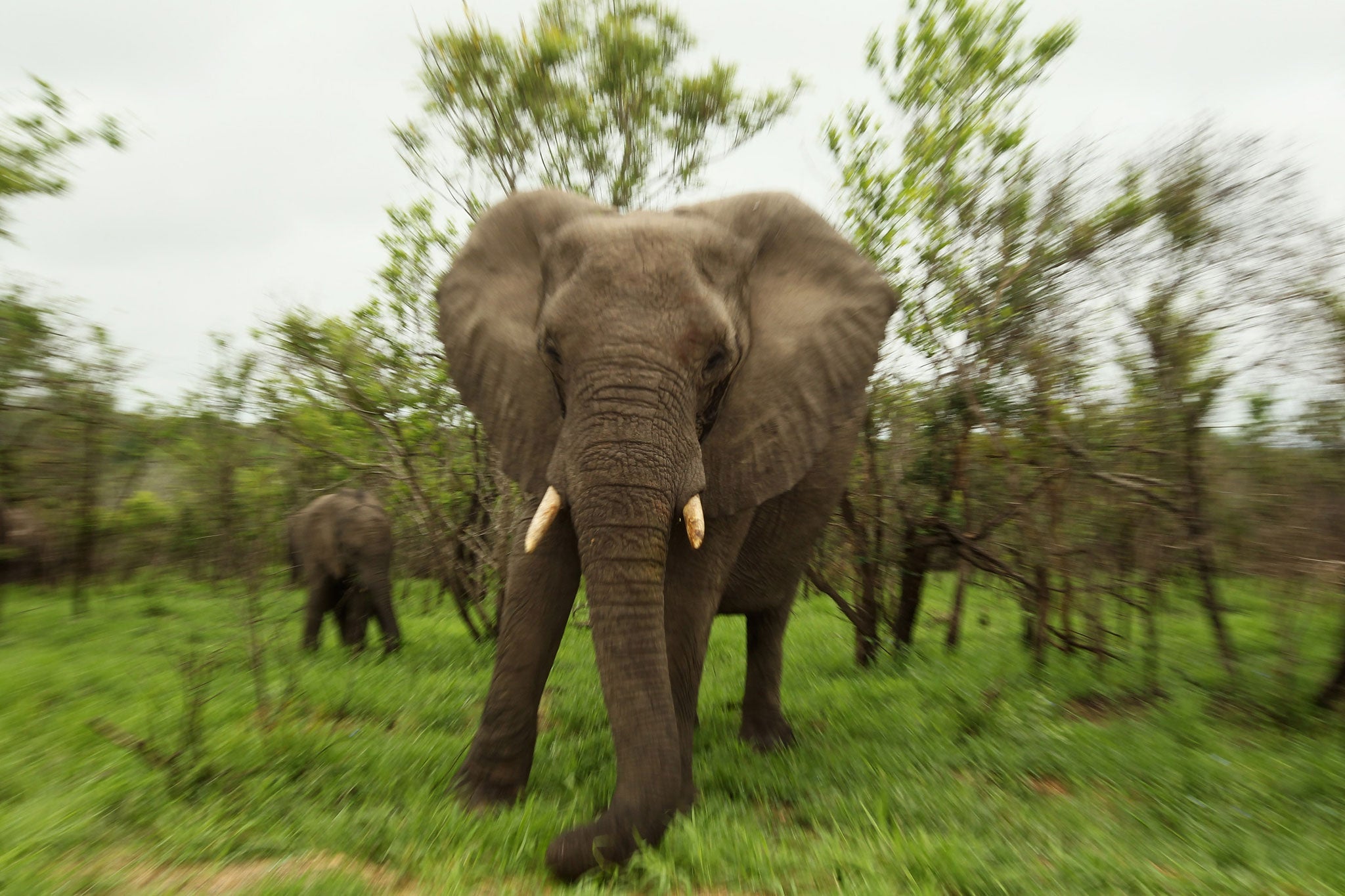A small charity needs all the help it can get in protecting Africa’s elephants
Over the last five years poaching has exploded, driven by the booming demand for ivory

It was set up, as a charity, to do what its name says – provide Space for Giants, in a landscape where finding that space is increasingly problematic. For the giants are African elephants, the world’s biggest land mammals, and they can often clash violently with poor farmers defending their crops. How would you feel if you lost your family’s food for the whole year in a single night, to a great trampling beast you couldn’t scare off?
But think of this charity now as an outpost against a rising tide of destruction.
Across the globe, the degradation of the natural world continues apace. We are witnessing the decimation of the rainforests, from Brazil to Borneo, the decimating of fish stocks in every ocean, the decimation of the wildlife of every continent – and lest we feel complacent, we should remember that we in Britain are not immune, as we have destroyed more than half of our birds, butterflies and wildflowers in the last half century.
Yet nowhere is the destruction more devastating or more spectacular than in Africa right now, where over the last five years elephant poaching has exploded, driven by the booming demand for ivory from the new middle class of China. The numbers of animals currently being slaughtered across the continent for their tusks by well-armed poachers, increasingly funded by organised-crime syndicates, is not known precisely, as surveys cannot keep pace with the killing, but it is beyond doubt that the annual figure is now tens of thousands.
Space for Giants, which works on the Laikipia plateau of Northern Kenya, has been swept along in the destructive tide; it has had to shift much of its focus into the anti-poaching fight. But it was set up by its founder, Dr Max Graham, a young English elephant biologist, to counter a subtler threat to elephant welfare, albeit one which is very serious, and will be there for the long-term: human-elephant conflict.
It is a clash very typical of the continent which holds together the world’s most magnificent wildlife, and the world’s poorest people. In Britain we love elephants for their charisma and their grave dignity, but I have talked to African subsistence farmers who express for them a virulent hatred, because an elephant family group, or even a single big male, can get into a field of crops and destroy the lot in one go.
These clashes will become increasingly prevalent, not least in a country like Kenya whose population of 40 million today is predicted to reach nearly 100 million by 2050, with consequent huge increases in the pressures on the land.
Dr Graham did his PhD on ways of mitigating the conflict, and what he discovered was that long-term planning for the use of the land was the essential tool, to try to create “elephant landscapes”.
“We feel elephants provide a blueprint for conservation planning,” he said. “If you’re conserving elephants, you’re conserving everything else.”
To make an elephant landscape that won’t be disrupted by outraged farmers involves systems of fencing and non-lethal deterrence, and above all, winning the co-operation of local communities. Space for Giants, set up in Kenya in 2008 and registered as a charity in Britain in 2011, is expert at that, and increasingly successful in integrating the farming population of Laikipia with its elephant population of 6,200
However, now there is a different crisis.
“The ivory trade, the poaching problem, is so big now it has come to dwarf any other problems we’re facing,” Dr Graham said.
“In 2010, the single-biggest cause of elephants being killed in our area was human-elephant conflict, but in 2011 it changed completely and soon we were losing animals to poachers every other day.
“We did an elephant count in 2008 and we counted over 7,200 elephants in our part of northern Kenya. In 2012 we did the same count and counted 6,000.”
Space for Giants has started its own anti-poaching campaign, using a system of scouts, and in the last 12 months local elephant deaths have been reduced by 64 per cent.
Under the very difficult circumstances, this small charity – it employs about 40 people – needs all the help it can get. It is indeed an outpost against a rising tide of violence and destruction; help it, and you are doing something to help stem Africa’s present wildlife holocaust.
But you’re also contributing to the future, for even if the current poaching crisis is successfully tackled, Africa’s giants are always going to need help in a continent that, as the 21st century progresses,will become ever more crowd-ed.
Read more about the Independent campaign here
Join our commenting forum
Join thought-provoking conversations, follow other Independent readers and see their replies
Comments
Bookmark popover
Removed from bookmarks